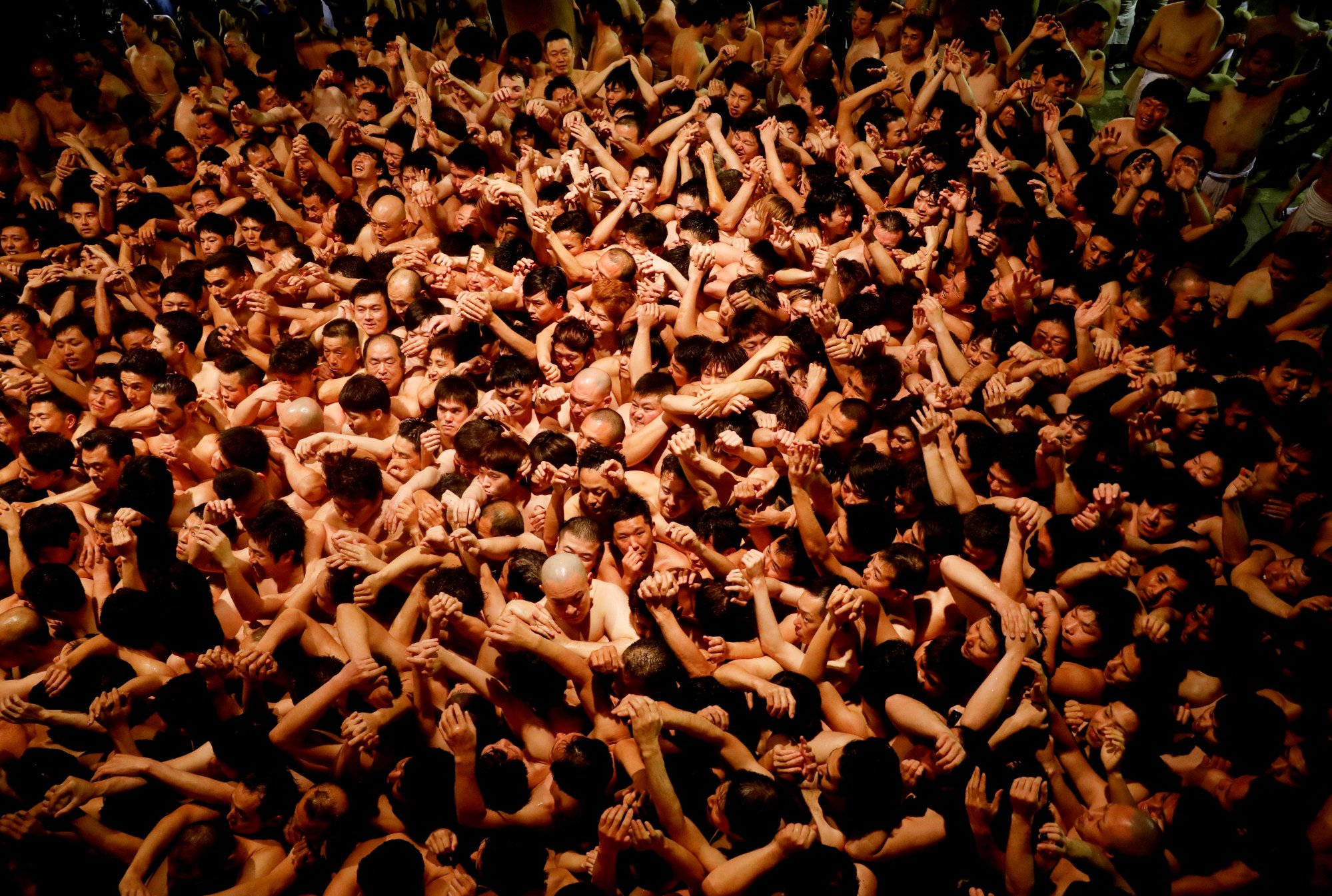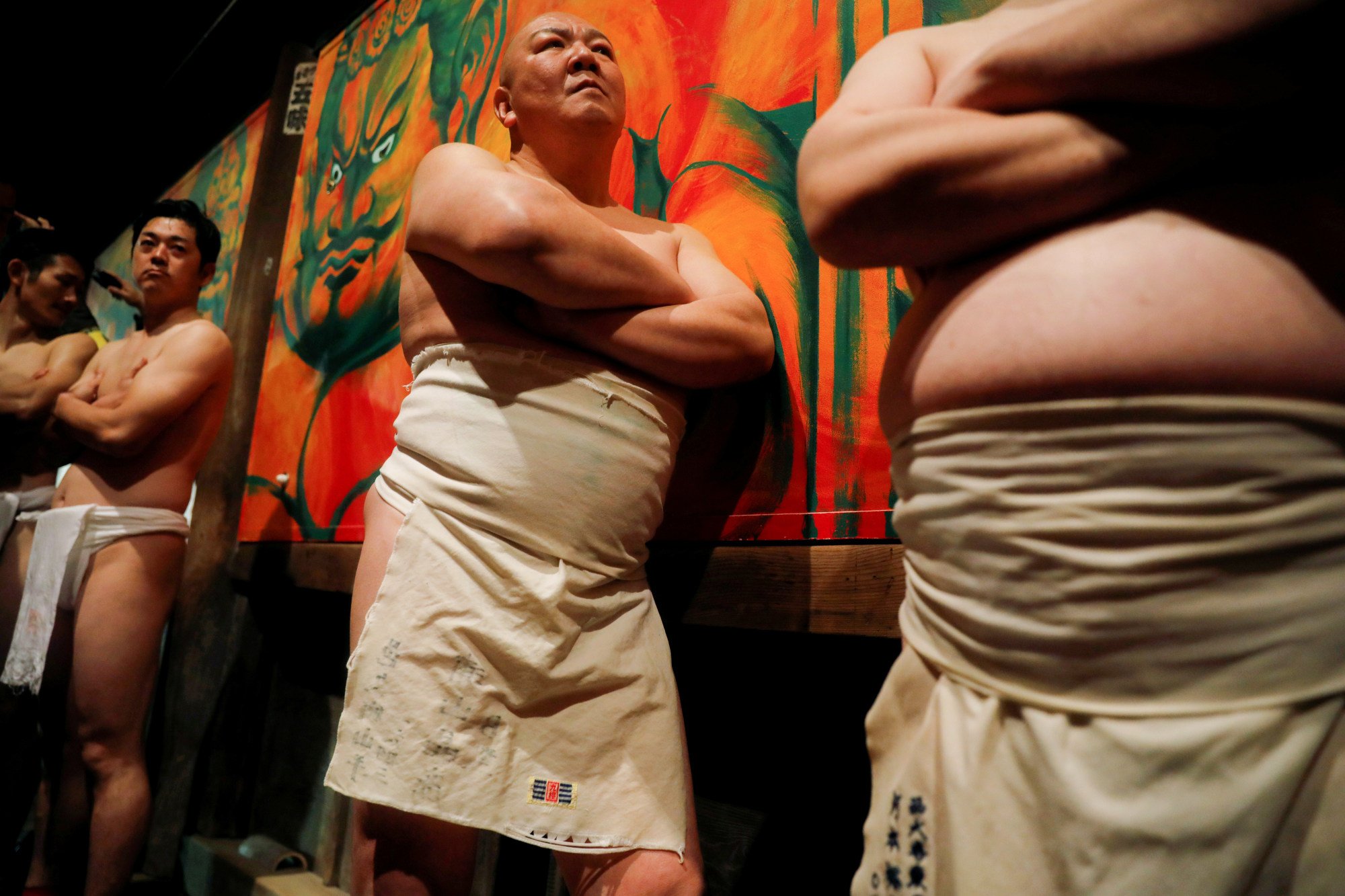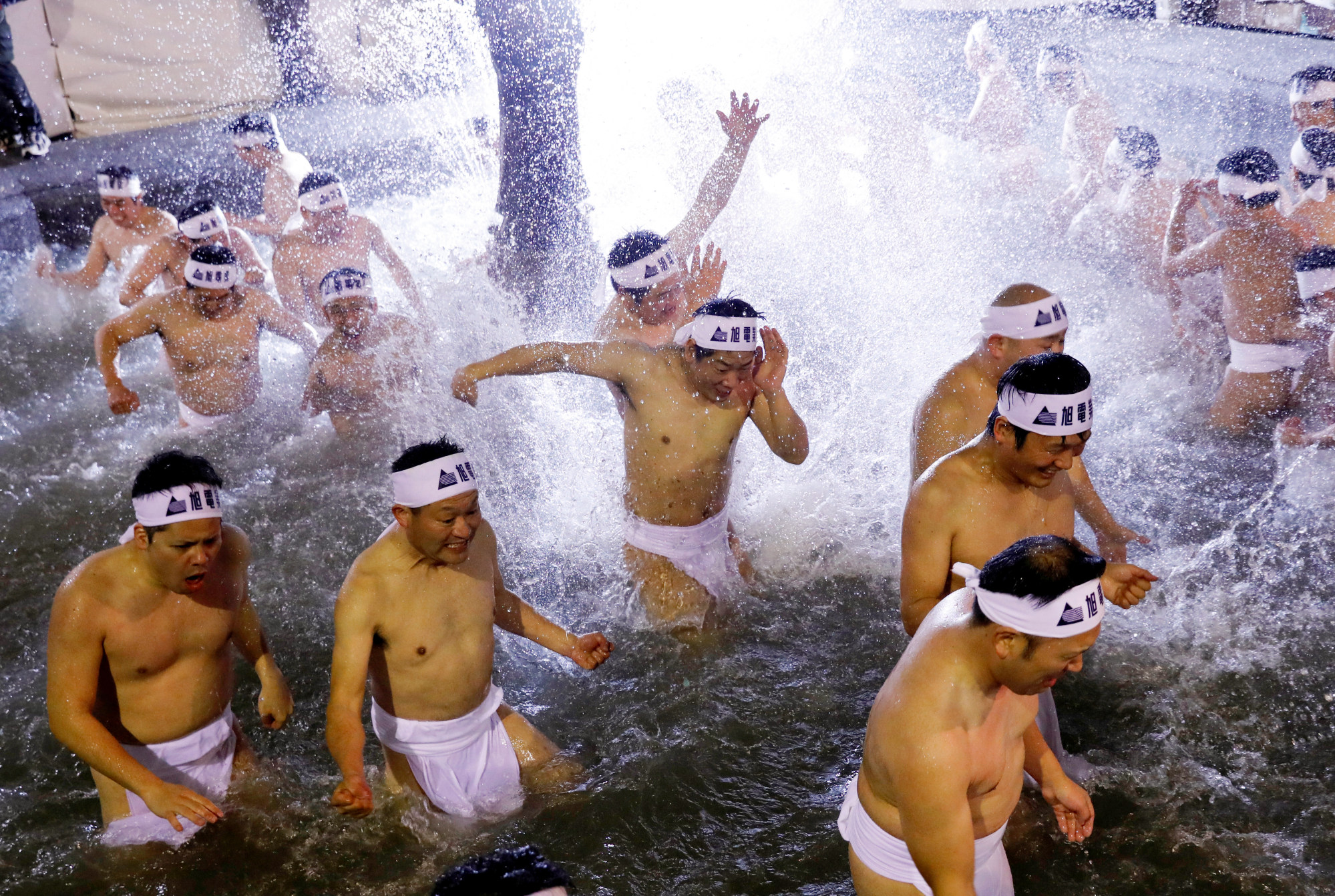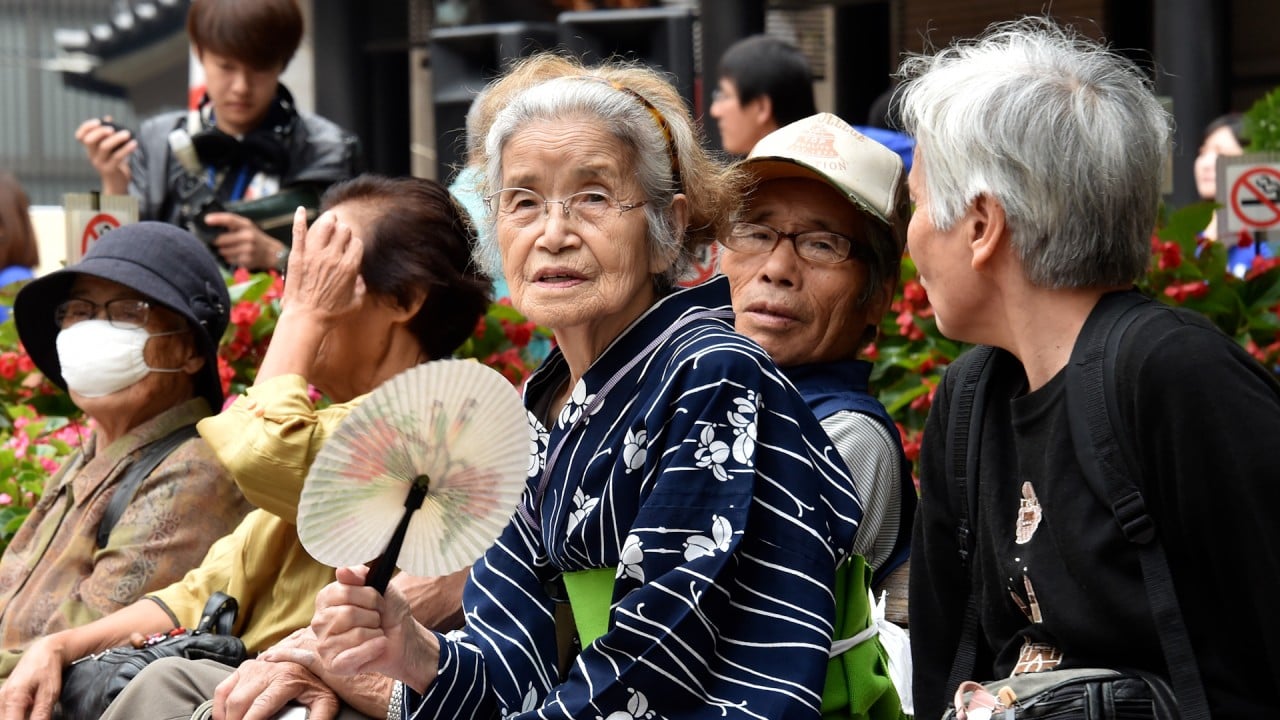Their passionate chants of jasso, joyasa (meaning “evil, be gone”) echoed through a cedar forest of the northern Japan’s Iwate region, where the secluded Kokuseki Temple has decided to end the popular annual rite.
Organising the event, which draws hundreds of participants and thousands of tourists every year, has become a heavy burden for the ageing local faithful, who find it hard to keep up with the rigours of the ritual.

“It is very difficult to organise a festival of this scale,” said Daigo Fujinami, a resident monk of the temple that opened in 729.
“You can see what happened today – so many people are here, and it’s all exciting. But behind the scenes, there are many rituals and so much work that have to be done,” he said.
“I cannot be blind to the difficult reality.”
Japan’s society has aged more rapidly than most other countries’. The trend has forced countless schools, shops and services to close, particularly in small or rural communities.
The final festival was a shortened version, ending around 11:00pm, but it drew the biggest crowd in recent memory, local residents said.
Meet the Japanese comic whose near-naked act is taking a UK talent show by storm
Meet the Japanese comic whose near-naked act is taking a UK talent show by storm
As the sun set, men in white loincloths came to the mountainous temple, bathed in a creek and marched around the temple’s ground.
They clenched their fists against the chill of a winter breeze, all the while chanting jasso joyasa.
Some held small cameras to record their experience, while dozens of television crews followed the men through the temple’s stone steps and dirt pathways.
As the festival reached its climax, hundreds of men packed inside the wooden temple shouting, chanting and aggressively jostling over a bag of talismans.

Toshiaki Kikuchi, a local resident who claimed the talismans and who helped organise the festival for years, said he hoped the ritual will return in the future.
“Even under a different format, I hope to maintain this tradition,” he said after the festival.
“There are many things that you can appreciate only if you take part.”
Many participants and visitors voiced both sadness and understanding about the festival’s ending.
For over 1,000 years, Japan’s ‘naked man’ festival barred women – until now
For over 1,000 years, Japan’s ‘naked man’ festival barred women – until now
“This is the last of this great festival that has lasted 1,000 years. I really wanted to participate in this festival,” Yasuo Nishimura, 49, a carer from Osaka said.
Other temples across Japan continue to host similar festivals where men wear loincloths and bathe in freezing water or fight over talismans.
Some festivals are adjusting their rules in line with changing demographics and social norms so that they can continue to exist – such as letting women take part in previously male-only ceremonies.

From next year, Kokuseki Temple will replace the festival with prayer ceremonies and other ways to continue its spiritual practices.
“Japan is facing a falling birth rate, ageing population, and lack of young people to continue various things,” Nishimura said.
“Perhaps it is difficult to continue the same way as in the past.”


